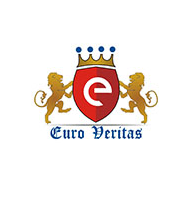 |  |
Quality awards are prizes awarded for some aspect of quality performance which has been demonstrated to an organisation which normally has no responsibility for the recipient's performance.
Awards are offered to either individuals or organisations, depending on the type of award.
All quality awards are made on the basis of an assessment of the applicant's performance against certain criteria. Some awards measure the result of quality activities (such as customer satisfaction), some assess the effort involved in ensuring consistency of output and others assess conformity of output to customer requirements. Most are awarded in some kind of competition among companies, but a few are not competitive - being assessments of an organisation's performance with no limit to the number of winners. As well as those describing themselves as quality awards, there are other similar awards for customer satisfaction and best practice.
Awards are organised and recognised by Euro Veritas Ltd:
Quality awards are not indicators of previous or future performance. They are one-time presentations only. There is no surveillance such as that with ISO 9000 certification.
For many awards the single most important reason for entering is the publicity that winning can bring. However, it is for the organisation to decide what it intends to gain from it. For some, the process of applying is therapeutic in its own right. The depth of scrutiny and preparation improves the organisation so much that winning is merely the icing on top. For some companies, it is the difference between retaining a major client or not. For others, it may be the widespread application of a quality tool or the first time that the senior management team has done something in a concerted and informed way.
If it is entering an award mainly for the publicity, an organisation should not be afraid to acknowledge this. In this way, it will go all out to achieve the results it wants. The same is true of financial benefits, improved employee moral, reduction in wastage, minimised environmental impact and so on. If that is what the organisation is really after then it should focus on it and make use of the award process to maximise the return.
The Effort : Most awards call for a considerable amount of effort, which can be both expensive and a serious distraction of resources.
The Conflict : Political infighting within a company can be increased when it is suggested that the company embarks on the award journey. If morale is already low, the process of applying is likely to stimulate more negativity rather than addressing the problem. Applying for an award has no credibility in itself, and is more likely to detract from the publicity value.
The Popularity : Some award winners, such as companies which have won The Malcolm Baldrige Award, report an unsuspected problem. The award is highly publicised and winners are expected to promote best practice based on their award performance. After a short time winners begin to report that they are inundated with requests for support and advice from would-be winners.
The award must be appropriate to the organisation. For example, a manufacturer's award intended for sub-component suppliers may be difficult to interpret, time wasting, and even harmful to the pension scheme supplier. Many awards are based on some kind of model of good quality practice. Unfortunately, the model may never have been validated - does it really bring bottom line benefits? It may well have been developed by an unrepresentative group of people. The award may have very little support from financial institutions, service companies, the construction industry, the media world and a host of other potential applicants.
There must be genuine commercial reasons for applying. A person will not be promoted for committing the company to something that takes several years to achieve, costs hundreds of thousands of pounds and does not improve the bottom line.
An organisation should start by getting the details from the organisers, reading them thoroughly, and then preparing an application. The idea must be thoroughly discussed with the board of directors or management team and its commitment obtained. A lot of awards involve the preparation of a document for submission. If this is satisfactorily assessed then there will be some kind of visit to the organisation. It is during the visit that all kinds of things can be checked out by the examiner(s). For example, if the award says that all employees should have a good understanding of the aims of the organisation then asking half a dozen employees can easily test this out.